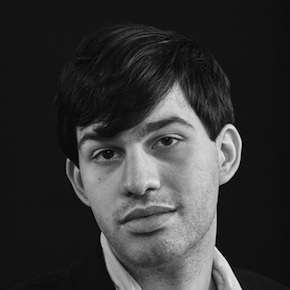Picking a subject
by Minoo Dinshaw
“This dazzling young writer is a mine of fascinating, memorable and totally useless information.” John Julius Norwich, Sunday Telegraph
If anyone asked I said I wanted to be a writer, and I imagined and intended that this should be another word for novelist. But the stories of the glamorous dead, biography and narrative history, were as often as not what I read for pleasure. Not long before the turn of the century, my mother pointed out a very old man, more like a tortoise in fact to my eyes, smiling quizzically as he edged across a hotel lobby. She identified him to me as a great medieval historian, Sir Steven Runciman.
I picked up one of Runciman’s books, The Sicilian Vespers, years later while on holiday in France. Runciman’s work does not read as if it is meant to be ordered from a university stack and referred to in passing to sharpen a scholarly debating point; it is really best suited to being relished cover to cover on a hammock. This encounter soon led me to look up Runciman’s trilogy on the Crusades in the same school library where, as it happens, he describes having absorbed more history than he ever did from his lessons.
Perhaps more under Runciman’s influence than I knew, I never became a proper historian, or wholly stopped being an improper one. I might think fiction and poetry the headiest and most characteristic of the literary arts, but the past, its witnesses and interpreters always seemed to provide the most exciting subject matter.
One or two novels amassed in electronic drawers. Sometimes I sketched a whole vast plot, like the scenery for an Inigo Jones masque, before I lost interest in implementing it. Often – sometimes weekly or daily – I conjured dramatis personae then left them where they were. It was a time whose economic circumstances encouraged me, along with most of my friends, to attempt jobs we disliked without any benefit of remuneration. Into this tentative pattern fell a meeting with, then an offer from, Steven Runciman’s niece, Ann Shukman.
I was, it seemed, pursuing the best-connected, longest-lived, widest-travelled and most mischievously elusive inhabitant of the most eventful century in human history.”
By now I thought I knew a little more about the historian who had offered both my holidays and schooldays such entertainment. I was aware in a vague, anecdotal way of his homosexuality, and had also heard indistinct stories about intelligence connections. Nonetheless, every minute I spent in the archive Ann has established at Runciman’s last house, Elshieshields in Dumfriesshire, seemed to entail some new ambush of coincidence and connection.
At times my quest appeared overwhelming. I was, it seemed, pursuing the best-connected, longest-lived, widest-travelled and most mischievously elusive inhabitant of the most eventful century in human history, as well as trying to convey a sense of a historical bibliography that covered twenty books written over sixty years. I knew that my subject would have thoroughly disapproved of my impudence. In the end it may even have been this knowledge that helped set my hand at liberty. If formal success was impossible, perhaps I could do what I liked after all.
The manifold curiosities of Runciman’s character and personal life are of a kind to be constantly piqued rather than firmly sated. But the calibre of his style and thought stays at a soaring, classical constant, a liberal breadth from which we can derive nourishment as well as amusement, whether as historians or human beings. I hope I have managed to offer to the determined readership of my long book even a slither of the capricious wonder its subject gave to me.
 Minoo Dinshaw is the author of Outlandish Knight: The Byzantine Life of Steven Runciman (Allen Lane, £30.00), for which he was shortlisted for the 2017 Sunday Times/PFD Young Writer of the Year Award, in association with the University of Warwick. He is based in London,
Minoo Dinshaw is the author of Outlandish Knight: The Byzantine Life of Steven Runciman (Allen Lane, £30.00), for which he was shortlisted for the 2017 Sunday Times/PFD Young Writer of the Year Award, in association with the University of Warwick. He is based in London,
Read more

